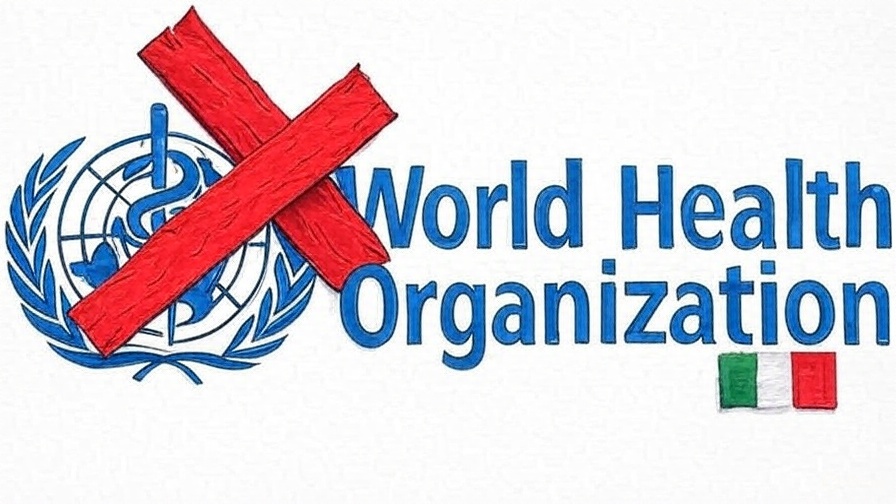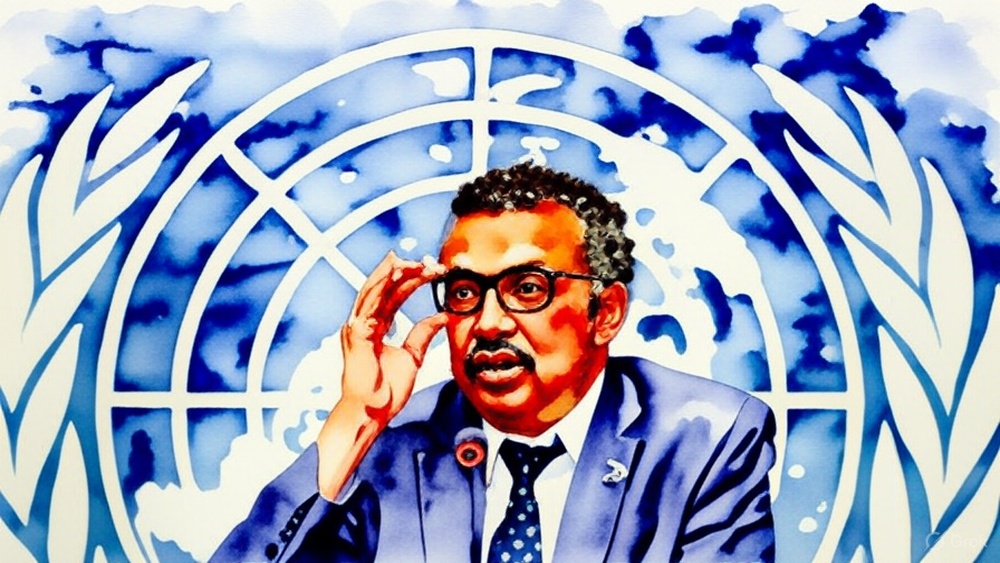International
Italy rejects WHO’s ‘Full Powers’ amidst Elite uproar: a stand for national Sovereignty

Italy has taken a firm stance against the World Health Organization (WHO), formally rejecting proposed amendments to the International Health Regulations (IHR) that were widely perceived as an attempt to grant the global body “full powers” over national health management. This decision, framed by the Italian government as a crucial defense of national sovereignty, has ignited a storm of criticism from significant segments of the Italian information elite, who are often seen as favoring globalist agendas over democratic self-determination.
The Core of Italy’s Rejection: Preserving Sovereignty
At the heart of Italy’s refusal lies the principle of national autonomy in health policy. The Italian Ministry of Health, under Orazio Schillaci, sent an official letter to WHO Director-General Tedros Adhanom Ghebreyesus, explicitly notifying the “rejection by Italy of all amendments adopted by the 77th World Health Assembly”. This strong repudiation was driven by concerns that the proposed changes would “expropriate governments of their freedom of action to counter health alerts”.
Specifically, the Italian government did not agree to the WHO’s ability to declare a pandemic emergency without the consent of individual states, nor did it accept the imposition of binding health obligations, including mandatory vaccines. Furthermore, Italy “categorically” refused the WHO’s pretension to exercise censorship over freedom of the press and the privacy of citizens in the event of a health alarm. Minister Schillaci emphasized that Italy’s choice was about “affirming with great courage… its national sovereignty in defining health policies”.
This move aligns Italy with the United States, as both are the only two countries that have openly rejected this specific regulatory path, with the U.S. also citing concerns about “excessive power” being conferred to the WHO and a violation of its sovereignty. The rejection does not signify Italy’s withdrawal from the WHO, nor does it create a regulatory vacuum; rather, the existing International Health Regulations remain in force.

Tedros Adhanom Ghebreyesus
The Information Elite’s Reaction: A Predictable Outcry
The government’s decision was met with a “rain of criticism” from the Italian left-leaning national newspapers, often referred to pejoratively as “giornaloni” “big, fat newspapers”. These influential media outlets and political factions swiftly accused the government of “selling out to Trump” and “isolating Italy in the face of future emergencies”.
La Stampa headlined “WHO, Italy’s break,” implying an alliance with the U.S. against the rest of the world. La Repubblica highlighted the Health Minister’s repeated opposition to the WHO, noting his previous alignment with Iran and Russia on pandemic agreements. The Corriere della Sera similarly attacked, stating “Rome like Washington on pandemics” and quoting health experts who deemed it a “wrong choice” that isolates the country. Opposition figures from parties like +Europa, the Five Star Movement, and the Democratic Party criticized the move as a slide into “dangerous health autarky” and “selling out citizens’ interests to Trump,” or favoring “no vax” positions.
These reactions, however, are a confirmation of the government’s correct course of action, given that the Italian elite, who are almost always behind anti-democratic and anti-liberal decisions, express themselves through these newspapers. The government’s supporters argue that rather than reflecting genuine concern, the criticism exposes the elite’s preference for external, non-democratic bodies to dictate national policy. Let’s remember that Bill Gates as the primary private financier of the WHO, alongside other powerful foundations, and these entities exert influence over health, agricultural, and immigration policies. The elite’s stance is not necessarily in the national interest but tied to broader, unelected global forces.
Beyond health: a broader critique of Elitism and Globalism
The government’s supporters view this episode as part of a larger ideological battle for national self-determination. They contend that the “information elite” – encompassing “intellectuals, psychiatrists, politicians, designers, singers, actors, religious hierarchies, Pd (The Democratic Party, aligned mostly with the global left) leaders, and trendy “chefs”—often shift blame onto ordinary citizens for perceived societal failures, arguing that they are not good, welcoming, and generous enough, thereby fueling resentment.
In Milan, a stark contrast emerges between the public facade and private anxieties of its left-wing administration regarding urban planning and social issues. Private communications from prominent architect Stefano Boeri to Mayor Beppe Sala reveal deep concerns about a growing influx of homeless individuals and escalating security problems. These private apprehensions stand in sharp opposition to the city’s publicly espoused, pro-immigrant stance.
This alleged “double face” suggests a troubling disconnect: while publicly advocating for progressive ideals, some elite figures privately grapple with the harsh realities of urban insecurity. The underlying sentiment is that these elites, despite privately acknowledging the rise in crime and insecurity—often attributed to uncontrolled irregular immigration—have done little to curb the very factors fueling these concerns. Instead, there’s a perception that Milan’s left-wing leadership is drifting towards an “ultra-left” agenda, pushing maximalist urban development plans that exacerbate existing social tensions rather than resolving them. This perceived inaction or even contradictory approach from the elite reinforces a growing public skepticism about their declared values versus the practical outcomes in the city.
In conclusion, Italy’s rejection of the WHO’s expanded powers is a significant act of defending national sovereignty. The ensuing backlash from parts of the Italian information elite is not as legitimate disagreement but a symptom of their pro-globalist bias and an unwillingness to accept democratic decisions that prioritize national control over international directives, especially when those directives appear to bypass national legislative processes and impact public life directly.






